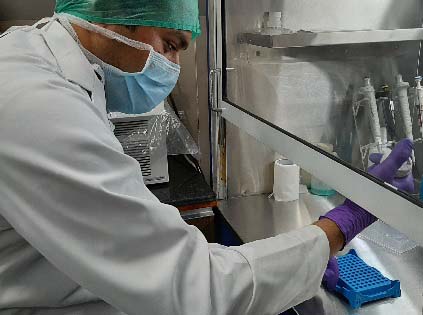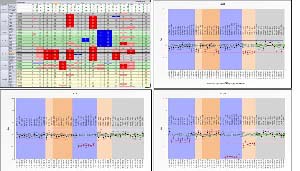Research Project
- Last Updated On :
 |
 |
||
|
Overview Hematological malignancies are an area of my interest, and I am actively pursuing research in this area. Some of the key research projects handled by me laboratory in recent years include the following. 1. Unit of excellence in cancer research on Multiple Myeloma (MM): This program has established advanced genomic tests in MM that are important for assessing prognosis and imparting high-quality personalized clinical care. My laboratory has investigated patterns of clonal evolution during the progression of MM. We have identified pairwise correlations among driver mutations and their effect on response to therapy at the subclonal levels. We are investigating genome-encoded specific amino acid substitutions and their impact on clinical outcomes. 2. Center of Advanced Research & Education on Acute Myeloid Leukemia (AML): AML in India has a disease burden of 2.5 cases per 100,000 and is distinct from the west because of the younger age at presentation (30-40 years vs. 60-70 years in US), an advanced stage and higher early mortality during treatment. In addition, disease relapse occurs in nearly 50% of the patients of AML within the first five years and is of concern worldwide. The persistence of leukemic stem cells (LSC), which are highly divergent founder progenitors harbouring heterogeneous functional, genomic, epigenomic and immunologic phenotypes, with self-renewal properties, cell cycle quiescence and chemo-resistance, acts as the epicentre of regrowth of leukaemia in treated patients of AML. The main focus of the proposed project is to characterize LSC in AML and study its microenvironment which may then be used to develop an appropriate therapeutic approach against them. 3. Minimal Residual Disease Estimation in Multiple Myeloma using Image Processing: This study is aimed at the development of a computerized image analysis software for the classification of neoplastic plasma cells (PC) and normal PC for estimating minimal residual disease (MRD) in multiple myeloma (MM). We aim to develop a resource-effective tool for MRD detection in clinical management of MM that will benefit Indian society because, in general, our public hospitals and pathology labs suffer from resource shortages, including skilled manpower. 4. Identification of network pathways for drug targeting in Multiple Myeloma from NGS data using Deep Learning: Most of the cancers involve intricate escape mechanisms in an individual that help malignant cells evade the immune system and develop drug resistance against chemotherapy. The inherent ability of cancerous cells to continue to evolve and reach a dynamic state of physiological heterogeneity is the underlying mechanism of treatment failure and the development of relapse in patients. In this study, an integrated approach will be used to analyse the genomic datasets of MM using machine learning/deep learning-based computational tools to corroborate the gene signatures of MM with their functional biological and pharmacological pathways at a high resolution.” |
|||




